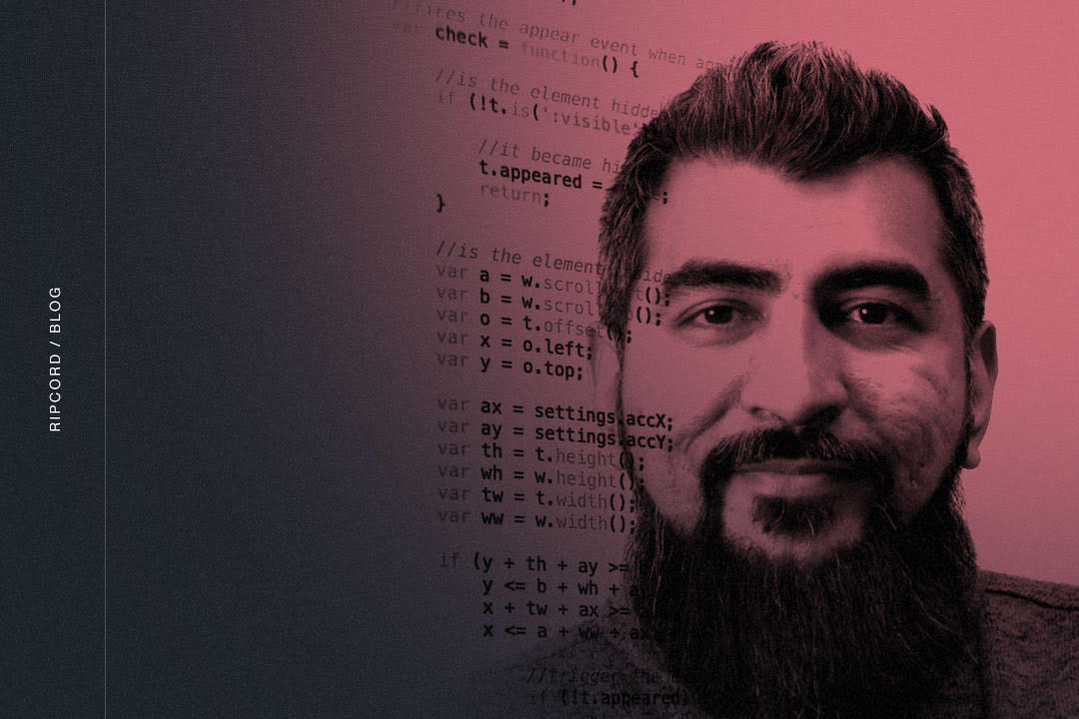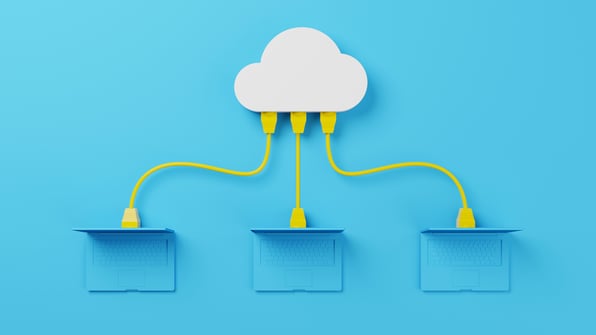
Ripcord Leadership Insights: Ahson Ahmad
Ripcord’s Chief Product & Technology Officer, Ahson Ahmad, began the path towards his career in product management as a self-professed “tech geek” who learned coding at a young age. Ahmad grew up in Toronto, Canada, and studied Computer Sciences at the University of Toronto. From there he says he went down the technical route as a programmer and architect, and it landed him in the content management space he’s now been in for 20 years.
His first position outside of college found him at Rogers Communications — one of Canada’s largest telecommunications companies — where he spent more than seven years directing content management projects from an architecture perspective. Ahmad also worked with a large number of consultants at Rogers, and he says he found their work intriguing, but was also critical of it, particularly because it left him wanting to create a better experience for customers.
“I think the major theme of my career path has been empathy. When I was working with consultants I think some of the things that were done by them were shortcuts, which we later had to fix. I wished I was on their side so I could help customers get a better experience, in terms of implementations.”
While at Rogers, Ahmad worked as an architect for the enterprise content management platform Documentum, which had been acquired by EMC in 2003. After transitioning to EMC, the company opened an office in Dubai, and this prompted Ahmad to relocate and move halfway across the world with his wife, where they would live for four years.
In Dubai, Ahmad worked first as a solutions architect, in content management and archiving, and then moved to the sales organization. “I was driven again by empathy. I found that I was on implementations where we sold the customer the wrong combination of products – so the solution was handicapped from the start. I wanted to be in sales to do the ‘solutioning’ up front.”
During this time Ahmad met quite a few product managers, and learned how their roles included developing the features for products with deep customer knowledge and technical chops piqued his interest in the role.
“I was driven by empathy for the customer, so I ended up in product management and have been there ever since," said Ahmad. "I’ve really enjoyed being in product, as it’s this nexus of sales and engineering and marketing and customer all together, and just being at that center point and trying to figure out product strategy and being creative — those are the things I really enjoy.”
Ahmad began working in product management for EMC in 2010 and relocated again, this time to San Francisco. He continued to work in product for the company for the next seven years and also served as General Manager of Product Management and Engineering for Alfresco.
EMC was acquired by Dell in 2016, and then the Documentum division, as well as Ahmad’s position, was acquired by OpenText in 2017. Ahmad spent close to two years with OpenText, as head of product management, before joining Ripcord in late 2018.
Ripcord’s Data-Extracting Technologies
Ahmad is definitely enthusiastic about his new position, and the cutting-edge work environment surrounding him. He speaks with great confidence in the technology behind Ripcord’s robotic digitization, and the service it can provide customers.
“The thing I’m amazed at with today is the actual robotics, and how we’ve built a very capable machine that can separate out document packets based on staples — automatically and at high-speed. This is very disruptive and unseen in the industry — effectively a ‘scan operator robot’. What I’m most excited about for the future however, is machine learning (ML) and the opportunity of using it on unstructured data, to gain insights from documents. Documents are the kind of data that we don’t talk about — it’s really dark data. It’s not like a database where you can just query it, and figure out what the value of something that you’re looking for is. Think of this as the ‘index operator robot’.
He continues, “I think that with technologies like machine learning, we can get it to the point where we can say, ‘Hey, this document is an invoice. I know it’s an invoice, and it’s overdue, and I know it’s not compliant because your policy says so.’ And the idea that we could combine physical robots with software (machine learning and AI) robots is really our vision and very much within reach.”
Ahmad also recognized early on how beneficial the digitization and content enrichment capabilities at Ripcord can be for the energy industry, especially for the oil and gas sector, after working with major players from the industry during his time in the Middle East.
He speaks of how oil and gas companies drill for geological samples to determine if they can find oil in a location, and once those samples are analyzed and reports are composed, the resulting documents — which can consist of hundreds of pages — end up residing in a box somewhere, for storage. And while the documents become brittle over time, and start to fall apart, it’s important to remember that a box of those documents could easily be valued at a million dollars.
“This is a really interesting discovery use case, because of what we can do with Ripcord’s technology, and the way our robots are able to gently handle the paper, remove the staples automatically, and at a high speed. We can take those boxes and start to help companies uncover potentially lost revenue or unrealized value, and then they don’t have to say, ‘Okay, you know what? We’re going to have to write off thousands of boxes because we can’t possibly go through all of this stuff, manually.’”
Ahmad continues by addressing the problem of manual handling of the paper documents, and how it risks potential damage to the documents, and the value within them. An oil company could decide to send out a new team to a new core sample, but then they’re spending a lot of money on something that’s already been done.
“Maybe they made a decision 50 years ago to not drill in a place that did have oil and they knew it did, but the cost of extraction was maybe 40 bucks per barrel and the cost of oil was only $30 a barrel at that time," said Ahmad. “Well now, let’s say a barrel of oil is $80. It’s totally worth it to drill now, where it wasn’t before. Then, because things have only become digital in the last couple of decades, a lot of this information isn’t even cataloged or logged properly.”
With it's robust and ever-evolving technology, Ripcord is well equipped for the extensive amount of digitization content management that's necessary for energy companies to succeed, and Ahmad is very optimistic about what Ripcord can accomplish in this field.
“What excites me about Ripcord is that we’re in this old, mature space, and we’re coming in with new technologies, with a cloud approach. We’re coming in with robotics, machine learning, and artificial intelligence (AI), and potentially disrupting the space with completely new technology in a way that the incumbents can’t, and that’s exciting.”
/Ripcord%20Logo%20-%20Color%2011.png?width=2000&height=620&name=Ripcord%20Logo%20-%20Color%2011.png)



